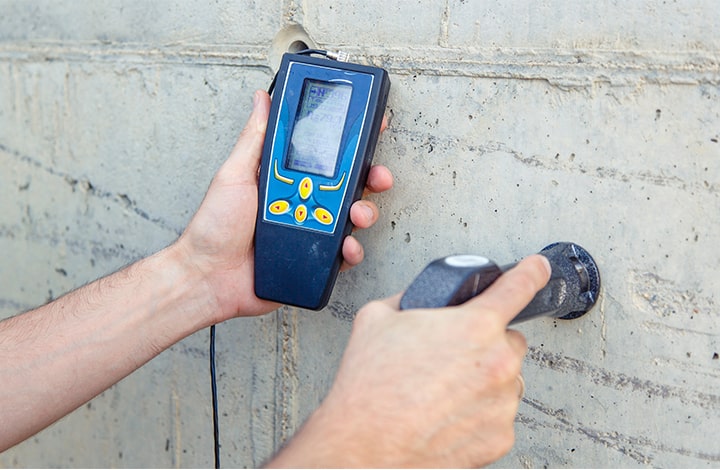Know Quality Tests which are carried out in the Cement Testing Laboratory
Cement is a crucial component in the construction industry, and its quality plays a vital role in the strength, durability, and safety of structures. To ensure that cement meets the required specifications and standards, it is essential to conduct quality tests in a cement testing laboratory. JSW Cement, a leading cement manufacturer in India, has a state-of-the-art cement testing laboratory that conducts various quality tests to ensure that its cement products meet the required standards.

- Physical Tests Physical tests are carried out to determine the physical properties of cement, such as fineness, soundness, and setting time. Fineness refers to the particle size of the cement, which affects its hydration rate and strength development. Soundness refers to the ability of cement to resist volume changes caused by hydration and is determined by the Le Chatelier apparatus test. Setting time refers to the time it takes for the cement to set and harden, and it is determined by the Vicat apparatus test.
- Chemical Tests Chemical tests are carried out to determine the chemical composition of cement, which affects its properties such as strength, durability, and workability. The chemical composition of cement is analyzed by X-ray fluorescence (XRF) spectrometry, which provides a quantitative analysis of the major and minor elements in the cement.
- Compressive Strength Tests Compressive strength tests are carried out to determine the strength of cement, which is a crucial factor in ensuring the durability and safety of structures. Compressive strength tests are conducted on cement cubes or cylinders, which are subjected to compressive loads until they fail. The compressive strength of cement is determined by the maximum load the specimen can withstand before failure.
- Setting Time Tests Setting time tests are carried out to determine the time it takes for cement to set and harden. The setting time of cement is an essential property that affects its workability and strength development. The setting time of cement is determined by the Vicat apparatus test, which measures the penetration of a needle into the cement paste.
- Soundness Tests Soundness tests are carried out to determine the ability of cement to resist volume changes caused by hydration. The soundness of cement is an essential property that affects its durability and resistance to cracking. The soundness of cement is determined by the Le Chatelier apparatus test, which measures the expansion of a cement specimen when subjected to a specified amount of water.
- Specific Gravity Tests Specific gravity tests are carried out to determine the density of cement, which affects its workability and strength development. The specific gravity of cement is determined by the pycnometer method, which involves measuring the weight of a known volume of cement and comparing it to the weight of an equal volume of water.
- Fineness Tests Fineness tests are carried out to determine the particle size of cement, which affects its hydration rate and strength development. The fineness of cement is determined by the Blaine air permeability method, which measures the amount of air that passes through a known mass of cement at a specified pressure.
- Heat of Hydration Tests Heat of hydration tests are carried out to determine the heat released during the hydration process of cement. The heat of hydration of cement is an essential property that affects its strength development and durability. Heat of hydration tests are conducted using a calorimeter, which measures the heat released during the hydration of cement.
In conclusion, the quality of cement is crucial in ensuring the strength, durability, and safety of structures. JSW Cement, a leading cement manufacturer in India, has a state-of-the-art cement testing laboratory that conducts various quality tests to ensure that its cement products meet the required standards.
JSW Cement operates several laboratories that are equipped with advanced testing facilities to ensure the quality of their cement products and its application. Their quality control project, "Concrete Ki Pathshala," has become a trusted destination for players in the construction industry to have their products investigated. The fully equipped laboratories and advanced technology testing equipment make the testing process even more reliable and accurate for their clients.
Known for its commitment to innovation and customer service. One such initiative undertaken by JSW Cement is the "JSW Cement Care Van," a unique mobile laboratory that travels to various construction sites to provide on-site cement, aggregate and concrete testing services.
The JSW Cement Care Van is equipped with advanced testing equipment and is staffed by expert technicians who can conduct various tests to ensure the quality of cement. The van provides various on-site testing services, including compressive strength testing, water permeability testing, and setting time testing, among others. This mobile laboratory helps to ensure that the cement being used in construction meets the required specifications and standards, providing peace of mind to builders and contractors.
The JSW Cement Care Van is a valuable initiative undertaken by JSW Cement to support the construction industry and ensure the quality of cement used in construction. By providing on-site testing services, technical support, and community outreach, the JSW Cement Care Van helps to promote safe and sustainable construction practices in India.





